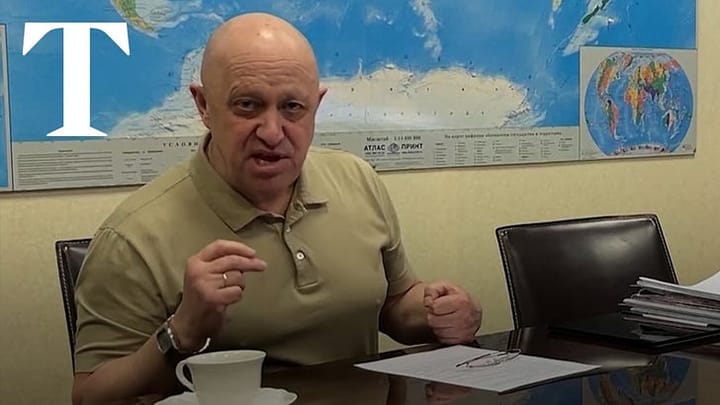Random Shakeups To Continue Until Morale Improves
Russia's war effort in Ukraine was starting to look almost competent. Can't have that!
Details are sketchy at this writing, but it appears that Russia has demoted the general leading the war in Ukraine, Sergey Surovikin. Valery Gerasimov, the Russian army chief of staff, will be replacing him, and Surovikin will be one of three subordinate commanders.
Surovikin’s previous claim to fame was running Russia’s intervention in Syria - as an air force commander, this involved almost exclusively massive air strikes, usually against civilian targets. This helped establish Surovikin’s image as an iron-fisted brutish caricature of a Russian general, one which he was all too happy to encourage when dealing with the media.
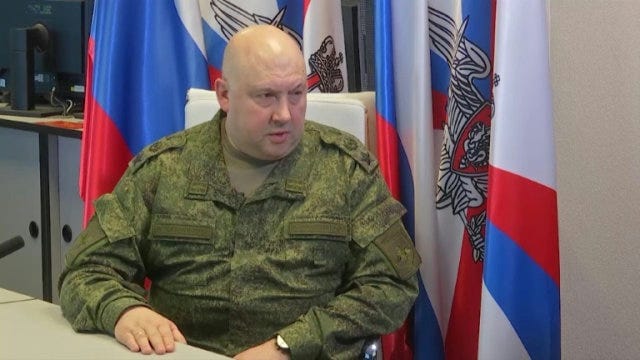
As Russia quickly discovered, the lessons learned in Syria weren’t terribly helpful in Ukraine, mainly because Ukrainians had the annoying habit of having actual air defenses. However, in the aftermath of the Russian rout from Kharkhiv, Ukraine pulled off a surprise blow deep within Russian territory - knocking out the Crimea Bridge, a huge prestige project for the Kremlin and a thumb in Vladimir Putin’s eye. In response, Putin, supported by yowling ultra-nationalists on Telegram, decided to make Ukrainian civilians suffer and suffer hard. Thus, enter Russia’s most experienced bomber of civilians, stage left.
However, while gleefully bombing Ukraine’s electric infrastructure into the Stone Age (or at least giving it the old war college try, with the assistance of a bunch of Iranian drones), Surovikin also used the influence he had won from stomping around on Russian TV to pull Russian troops out of Kherson. Militarily, this was absolutely the correct move; Ukraine had almost entirely cut off supply lines to the troops on the far side of the Dnieper river and were set to annihilate them in detail. The withdrawal itself, unlike the Kharkiv collapse, was performed competently; no massive stockpiles of weaponry were left behind, and the vast majority of troops got out to fight another day.
However, a tactical victory can be a strategic defeat, and Kherson was the largest city Russia had taken in the war. Losing it was a pretty big blow, and it looks like Surovikin is taking the blame for it.
Or maybe it’s a bit more complicated. Russia being what it is (a militarist state verging on outright fascism), politics tends to be opaque. And here Wagner PMC enters the story.

Wagner PMC (private military company) is the mercenary army of Yevgeny Prigozhin, who since Vladislav Surkov lost power is the most interesting person in Russian politics. A longtime “associate” of Vladimir Putin, and like most now fabulously wealthy for the association, Prigozhin is also an ex-convict whose public pronouncements usually verge on the unprintably obscene (such as when the New York Times asked as to Wagner’s interest in Sudan’s mineral wealth, he explained it was because he wanted to impress a woman he had “friendly, comradely, working sexual relations with”). Prior to the war in Ukraine, he was known, at least in America, mainly for one of his other business interests - the “Internet Research Agency”, the notorious St. Petersburg troll factory that did its best (on a shoestring budget) to cause havoc in the US electoral system, mostly through really bad Facebook ads.
Yet now Prigozhin isn’t just a Facebook troll, he’s a full-on 21st century warlord, in direct — and open — competition with the Russian army. A few months ago, Prigozhin suddenly appeared in Russian prisons offering amnesty for anyone willing to go fight in Ukraine under Wagner’s auspices. I realize this sounds exactly like the bad plot of a movie starring Nicolas Cage, but it really happened.
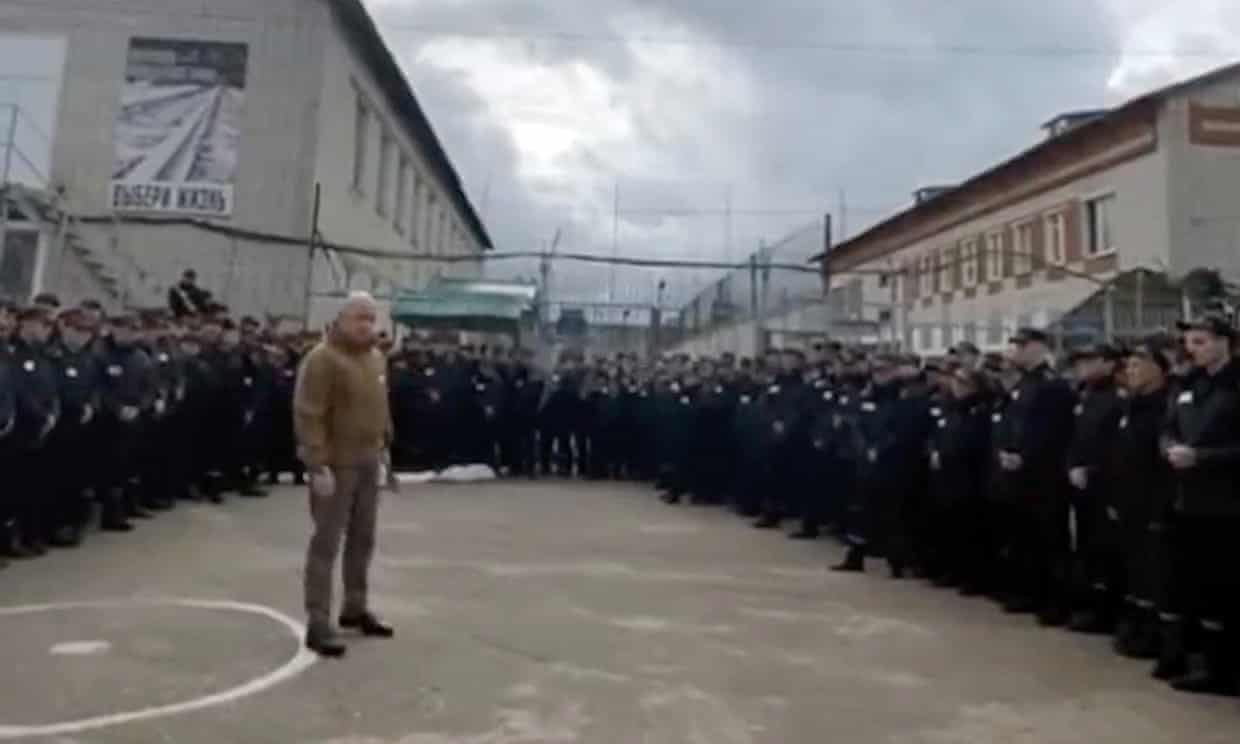
In his own words:
I only want stormtroopers. Those who move forward, those who are fast as greyhounds, they survive better. Those who hang back, do not understand what to do, get it in the ass.
The first prisoners who fought with me were on June 1, the assault on the Uglegorsk thermal power plant. Forty people from St. Petersburg, strict regime, relapse, went into the trenches of the enemy, cut them with knives, three dead, seven wounded. Among the dead, one was 52 years old, thirty of them were imprisoned, he died heroically.
No one falls back, no one retreats, no one surrenders. When you learn how to behave when surrendering, you will be told about two grenades that you should have with you. For those who arrive and on the first day say: “I’m not going there”, we make a mark, “deserter”, and after that execution follows.
And from a witness:
On July 24 the Wagner PMC boss, Prigozhin himself, came to our [prison] colony. At the command of the head of the institution, all the inmates lined up at the parade ground, and he started to speak about the war (that's how he called it), about the weakening of the regular army, which cannot cope, about cleansing one's sins by blood.
He promised a salary of 100,000 rubles and 100,000-ruble bonuses for the fulfillment of specific tasks. He talked about a pardon from Putin in six months. That if one is killed the relatives would be paid 5 million rubles. He said he had classified orders from the president to use all possible resources.
Prigozhin said that for now he needs volunteers - the bravest and the most vigorous. He called his organization an organized crime group and talked a lot about the advantages of participating in the war through them. Honestly, I thought it was a surrealistic dream. A man, who had a Hero of Russia star pinned to his T-shirt, was telling us loud and clear about what was going on in our country. That bandits are really in power and they don't give a fuck about all kinds of human rights organizations like Gulagu.net or the Committee of Soldiers' Mothers. He told us about losses in combat operations: 10-15% will be killed and 15-20% wounded. He said they did not need cannon fodder, but needed fighters who would fight.
All in all, it sounded very attractive and solid. And the worst thing is that around 300 people out of the 1,300 serving their sentences in the colony wanted to sign up. And what's even scarier is that, according to a man from the entourage, the next time they will not be taking volunteers but those who are on the lists.
Shortly thereafter, Wagner’s assault on the strategically insignificant town of Bakhmut began. And it has been going on ever since. The prisoners recruited by Prigozhin are sent in human wave assaults on the at first surprised, then disgusted, and finally grimly determined Ukrainian fortified lines. And they die. And the next wave is sent. And they die. And the next wave is sent. And they die.
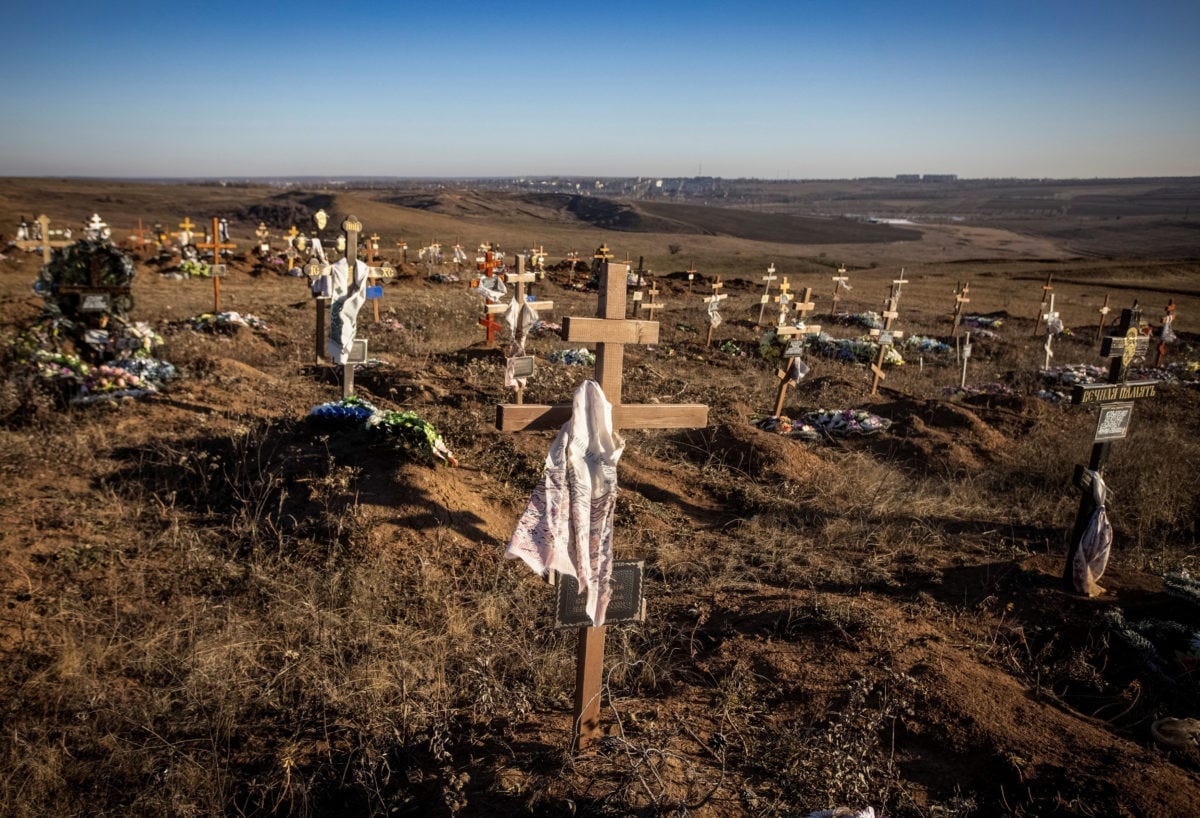
To quote Volodymyr Zelensky, Ukraine’s president:
Everything is completely destroyed, there is almost no life left. And thousands of their people were lost: the whole land near Soledar is covered with the corpses of the occupiers and scars from the strikes. This is what madness looks like.
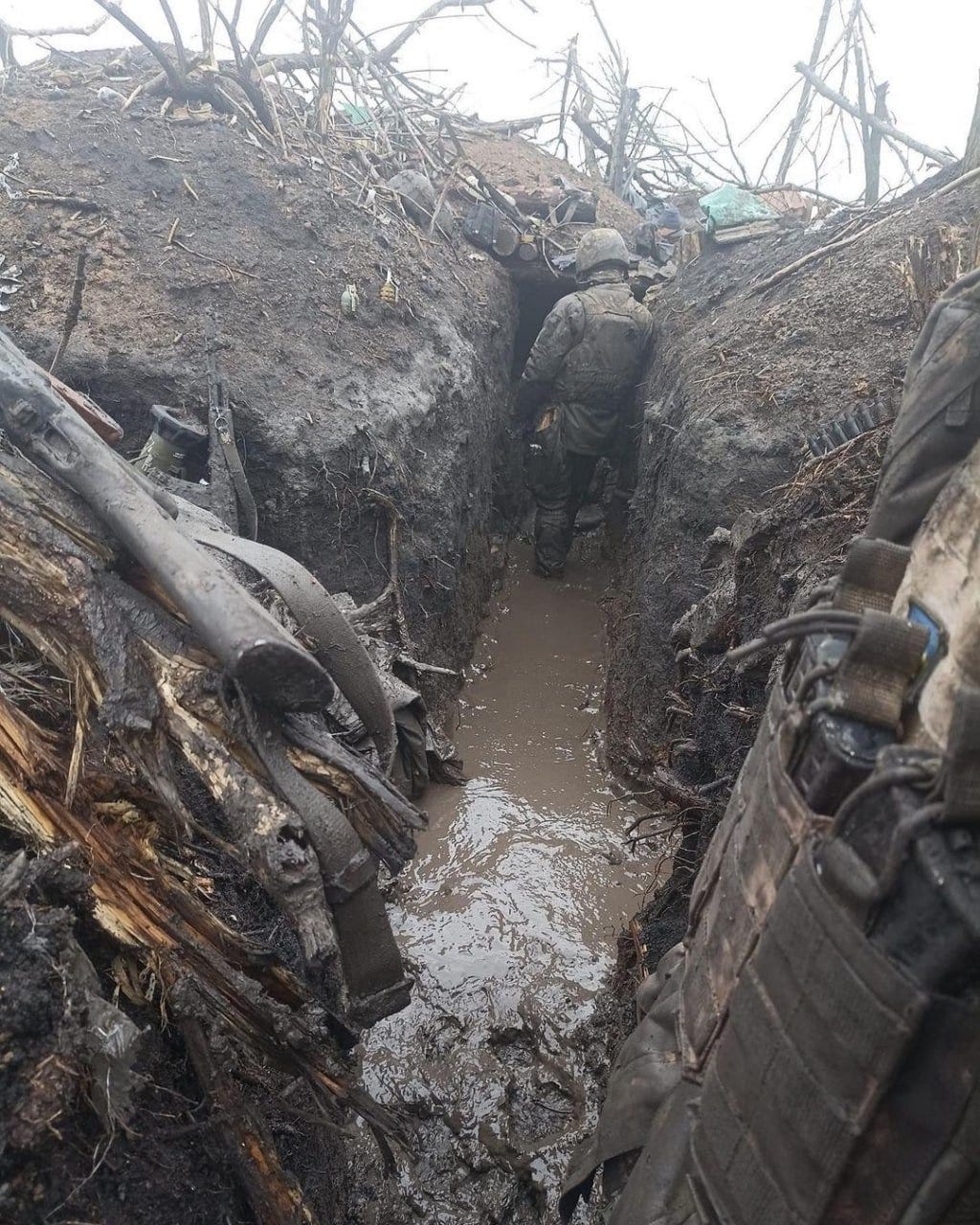
Russia’s casualty figures from the Battle of Bakhmut are comparable to a similarly poorly conceived throwing of meat against machine: the Battle of the Somme, in World War One. Tens of thousands dead in a single month (December).
The convicts who fall back are shot by their own men. A few manage to surrender. One, for whatever reason, was sent back by Ukraine in a prisoner exchange. Wagner immediately published an video to the internet of the convict being executed with a sledgehammer. The sledgehammer was later sent to the European Union parliament. Prigozhin loves to troll.

Why is Prigozhin sending a significant portion of Russia’s convict population to die in Bakhmut? Partially to show that Wagner is more effective than the Russian army. This was true, at least until Bakhmut bled them to death. (Regular Russian army units often act as follow-on forces to Wagner human wave assaults.) Prigozhin also mentioned that there were cavernous underground salt mines in the region. Seizing a shattered city because it has a mine nearby may have some logical sense, if you don’t kill tens of thousands of your own men in the process. In the end, we don’t know what is driving the lemmings of Wagner to run off that particular cliff yet.
But here’s the key and why I went on this very long tangent explaining Prigozhin’s history in the war: Surovikin was Prigozhin’s, and Wagner’s, highest ranking ally in the Russian military. And Prigozhin has been very loudly proclaiming how well his praetorians have been doing, as opposed to the regular army - with the exception of Surovikin, who Prigozhin has had nothing but praise for.
Thus the one remotely competent combat leader in the Russian high command is demoted. It will be interesting to see in the next few days how Prigozhin and Wagner respond to this. Most likely, it will involve more senseless attacks. After all, Russian convicts are a renewable resource.
And if Wagner run out of Russians, there’s always Africa.
Because in this blighted world, everything really, really is horrible.


